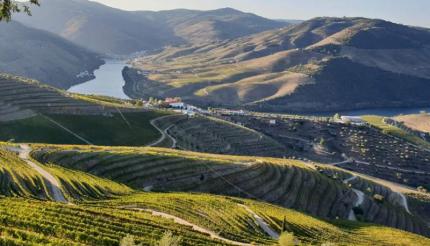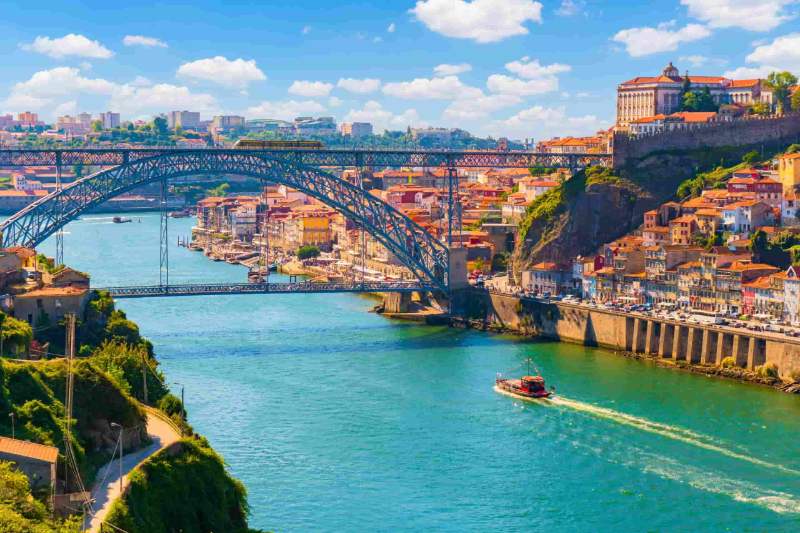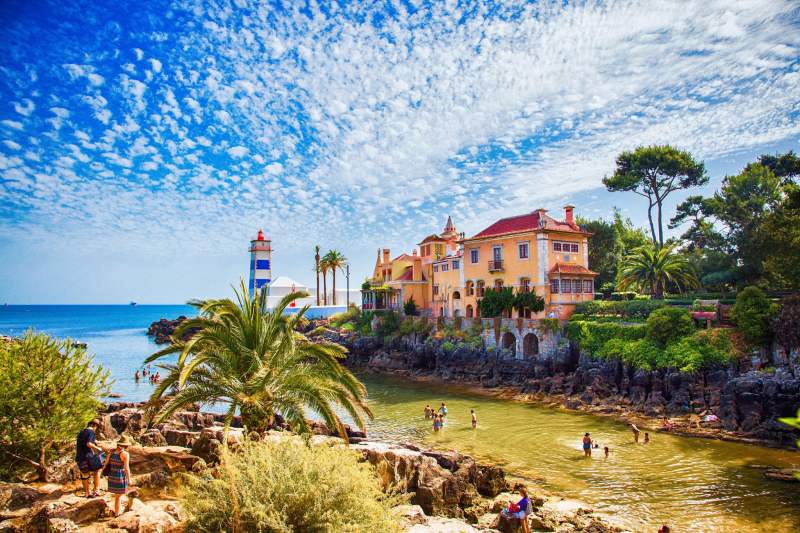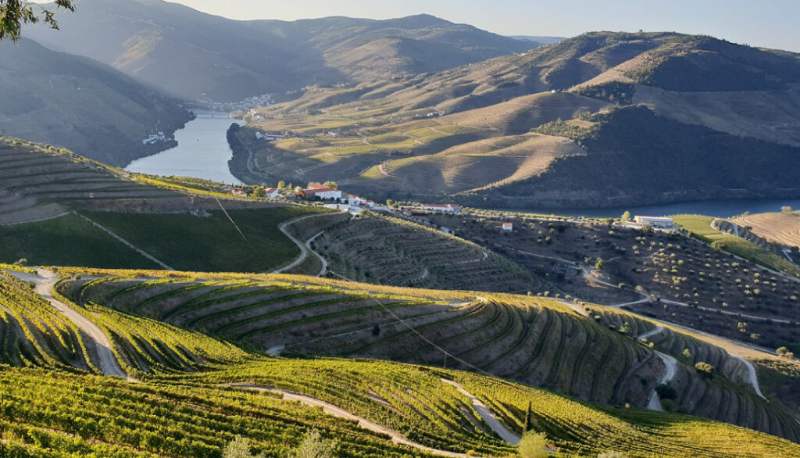Get free consultation
Fill out the form and we will contact you
Portugal, a country located in southwestern Europe, is famous for its mild Mediterranean climate, offering more than 300 days of sunshine each year. From the capital Lisbon to the Algarve region and the Madeira archipelago, Portugal’s climate is one of the main reasons attracting tourists, residents, and international investors. Let’s explore the details of Portugal’s climate.
Portugal has a Mediterranean climate (classified as Csa and Csb according to Köppen), with warm, dry summers and mild, wet winters. However, the climate varies depending on the region due to its diverse geography, ranging from the Atlantic coast to the inland mountainous areas.
Portugal has a Mediterranean climate
Temperature: Average 17°C year-round, with summer (June–August) ranging from 25–30°C and winter (December–February) around 8–15°C.
Rainfall: Rain is concentrated in winter, averaging 700–800 mm/year, while summers are almost dry.
Characteristics: Lisbon is nicknamed the “city of sunshine,” with over 3,300 hours of sunshine annually (according to the Instituto Português do Mar e da Atmosfera – IPMA, 2024). The mild climate is ideal for outdoor activities such as walking through Alfama or visiting Belém Tower.
Temperature: Summers 28–35°C, winters rarely below 10°C, with an annual average of 18°C.
Rainfall: Only around 500 mm/year, the lowest in the country, making Algarve perfect for sun and beach lovers.
Characteristics: With beaches like Praia da Marinha, Algarve attracts over 4 million visitors annually (Turismo do Algarve, 2024). The hot, dry climate is similar to Southern California, ideal for vacationing and real estate investment.
Temperature: Summers 20–25°C, winters 5–14°C, annual average 15°C.
Rainfall: Higher than the south, about 1,200 mm/year, concentrated in autumn and winter.
Characteristics: Cooler climate with characteristic foggy days near the Douro River. The region is famous for Port wine and lush green landscapes.
Temperature: Year-round 18–24°C, known as the “eternal spring.”
Rainfall: Madeira has moderate rainfall (600–1,000 mm/year), while the Azores are wetter (1,500 mm/year).
Characteristics: These islands have a subtropical climate, ideal for eco-tourism and relaxation. Madeira is ranked among the top 10 island destinations in the world (TripAdvisor, 2024).
Portugal’s climate not only provides a high quality of life but also boosts key economic sectors, particularly tourism and real estate:
Warm climate helps Portugal welcome over 20 million tourists annually
Tourism: Portugal’s warm climate allows the country to welcome over 20 million tourists each year (according to INE Portugal, 2024), with popular destinations like Lisbon, Algarve, and Madeira bustling year-round.
Agriculture: The south produces olives, grapes, and oranges, while the north is famous for its wine. The stable climate ensures high agricultural productivity.
Real estate: The ideal climate increases property values, particularly in Lisbon and Algarve, with housing prices rising 6–8% per year (Idealista, 2024).
The mild climate also contributes to making Portugal one of the safest and most livable countries in Europe, ranked 7th on the Global Peace Index (2024).
Compared to other EU countries, Portugal’s climate offers several advantages:
Greece: Also has a Mediterranean climate, but summers are hotter (up to 40°C) and winters colder in the north.
Spain: Similar to Portugal, but cities like Madrid experience hotter and drier summers.
France: Southern France resembles Portugal, but the north has cold, rainy winters.
Portugal’s stable climate and low natural disaster risk (only a low risk of summer wildfires) make it a safe choice for long-term residence.
Portugal’s climate shapes a relaxed, nature-oriented lifestyle:
Portugal’s climate shapes a relaxed lifestyle
Outdoor activities: From surfing in Algarve, hiking in Serra da Estrela, to trekking in Madeira, the warm climate encourages year-round outdoor activities.
Cuisine: The climate supports the production of fresh seafood, wine, and fruit, contributing to dishes such as cataplana (seafood stew) and pastel de nata.
International community: Thanks to the pleasant climate, Portugal attracts a large expatriate community, especially in Lisbon and Algarve, making it easier for newcomers to integrate.
Portugal’s climate, with over 300 days of sunshine and diversity from Lisbon to Madeira, not only provides an excellent quality of life but also creates appeal for investors through the Golden Visa program. This is an opportunity for you and your family to enjoy European living in an ideal environment. Contact quoctichthuhai.com to explore Portugal residency opportunities today!
Fill out the form and we will contact you



